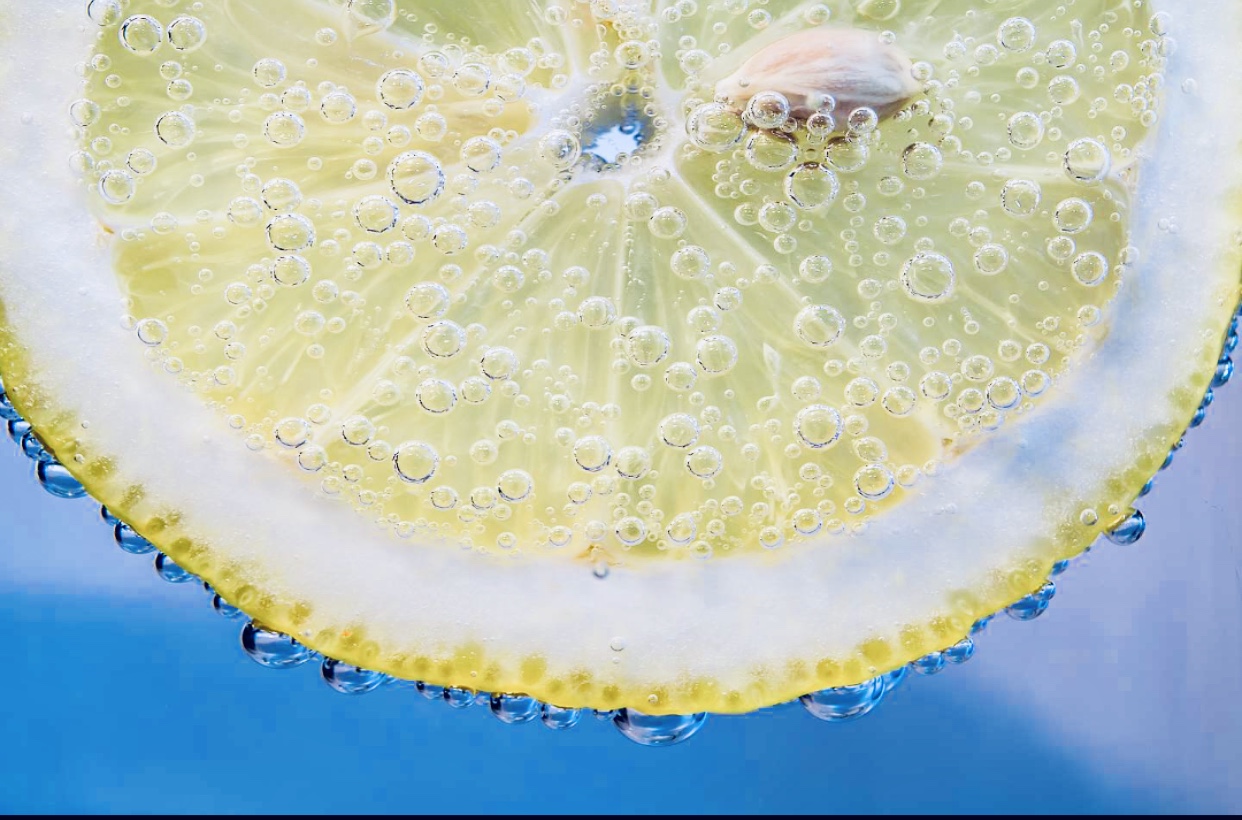Every day about 750 people are admitted because of cardiovascular diseases and every day 106 people die because of this disease. This affects women more often than men (1). These figures impress me. My mission is therefore to make everyone more aware of this disease. If you want to understand the course of the disease you must know what happens in the body. If you know this, you can at least make sure that you can reduce the chance of getting this disease as much as possible. If you are a heart patient, there is still a lot you can do to improve your quality of life enormously. Often even without medication!
The secret of Lemons was discovered a long time ago.
We probably all know the stories of the sailors who lived at sea for a long time and suffered from scurvy. Scurvy occurs when there is a long-term, absolute absence of vitamin C. Scientific research has established that arteriosclerosis is the result of a long-term shortage of vitamin C and can therefore be seen as the pre-stage of scurvy. The first symptoms of scurvy include swelling and bleeding of the gums and bleeding from the legs. In a later stage, teeth can become loose and, in addition to fatigue, anaemia, palpitations and shortness of breath, fatal internal bleeding occurs. It was discovered by accident that eating lemons could prevent scurvy due to the vitamin C content in lemons.
Medication or looking for the cause?
The standard treatment for cardiovascular disease is to combat the symptoms and for this purpose various medications are prescribed, such as calcium antagonists, beta blockers, nitrates, blood thinners, statins to support the patient. Surgery has also become commonplace and you will often hear that someone has had a catheterised artery or a stent placed to remove the narrowing of the blood vessel. None of these treatments addresses the real problem; the weakened wall of the blood vessel.
Cellular medicine: Nutrients more important than drugs.
Our body always wants to repair, if something breaks or doesn't work properly, it will be repaired or replaced immediately. If the body gets enough nutrients to perform these repairs, there is actually nothing wrong. Unfortunately, our current food supply is not what it should be and the body can no longer carry out the repair process properly. This leads to all kinds of health problems, including cardiovascular disease.
Now it appears that cellular medicine offers new insights. The main cause of cardiovascular diseases is a chronic shortage of vitamins and other vital cellular substances in the millions of vessel wall cells. A deficiency here leads to weakening of the vessel walls and ultimately to arteriosclerosis. From this point of view, a deficiency of vital cell substances in the vessel walls is the main cause of cardiovascular diseases and daily intake of these important substances is the first step to prevent arteriosclerosis and help repair the damage to the vessel wall (2).
High cholesterol is a consequence, not a cause!
Too often people think that cholesterol is the main cause of cardiovascular diseases, while a high cholesterol is actually the consequence of cardiovascular diseases and not the cause! High cholesterol values are only harmful if Lipoprotein (a) is also elevated (3). An increase in Lipoprotein (a) is a sign that the blood vessel walls have become weak and the body is trying to repair this. Without sufficient nutrients, such as: Vitamin C, Copper, Lysine, Vitamin B6, this leads to a disturbed production of collagen.
 Collagen, not just for the outside.
Collagen, not just for the outside.
Collagen is important for the connective tissue. The beautician has known this for years and tries to improve our wrinkled faces by stimulating the production of collagen with, among other things, connective tissue massages and creams. Connective tissue is not only found in the face, but the entire body is full of it! And therefore also the walls of our blood vessels!
Vitamin C or statins?
Through prolonged deficiency of vitamin C, among other things, tiny openings in the connective tissue are created, causing them to leak. And this happens first in the blood vessels, they become porous. It is the beauty of the body that it is always in a kind of recovery mode. As soon as something breaks down or is not working properly, the body wants to repair it.
 Now animals (a handful not) can make vitamin C themselves, but we as humans have lost the ability to make vitamin C ourselves in evolution. The body has found a solution for this in the production of Lipoprotein (a) (4). At the moment when there is too little vitamin C present, the body will produce Lipoprotein (a) as a temporary solution to close holes in the blood vessels. Without Lipoprotein (a) we would literally bleed to death. However, as long as there are insufficient nutrients present, the body continues to suffer damage and the body continues to produce Lipoprotein (a). This, in combination with inflammatory reactions and multiplication of vascular wall muscle tissue, eventually leads to thickening of the wall of the blood vessels, making them stiffer and, for example, increasing blood pressure. Thickening and vascular wall deposits from within cause a narrowing in the blood vessel. This is called atherosclerosis. The body wants to keep repairing and values, such as cholesterol and triglyceride will rise, because the body just doesn't get it regulated. Cholesterol-lowering drugs (statins) have insufficient effect because they only lower the production of cholesterol and do not solve the problem. This is the degeneration of the blood vessel wall. In addition, they increase the risk of other diseases, such as diabetes (5).
Now animals (a handful not) can make vitamin C themselves, but we as humans have lost the ability to make vitamin C ourselves in evolution. The body has found a solution for this in the production of Lipoprotein (a) (4). At the moment when there is too little vitamin C present, the body will produce Lipoprotein (a) as a temporary solution to close holes in the blood vessels. Without Lipoprotein (a) we would literally bleed to death. However, as long as there are insufficient nutrients present, the body continues to suffer damage and the body continues to produce Lipoprotein (a). This, in combination with inflammatory reactions and multiplication of vascular wall muscle tissue, eventually leads to thickening of the wall of the blood vessels, making them stiffer and, for example, increasing blood pressure. Thickening and vascular wall deposits from within cause a narrowing in the blood vessel. This is called atherosclerosis. The body wants to keep repairing and values, such as cholesterol and triglyceride will rise, because the body just doesn't get it regulated. Cholesterol-lowering drugs (statins) have insufficient effect because they only lower the production of cholesterol and do not solve the problem. This is the degeneration of the blood vessel wall. In addition, they increase the risk of other diseases, such as diabetes (5).
Thinker!
Cardiovascular disease is common in humans, but we see little to no of this in animals in the wild. These themselves produce vitamin C in very large amounts of 2,000 to 20,000 mg per day, to support the production of collagen needed to keep blood vessels healthy and elastic. The recommended daily allowance (AHD) of vitamin C for humans is only 60 to 80 mg per day! Way too little to keep the body from getting sick and what the body can't even make itself! Per 100 grams of oranges you get about 50 mg of vitamin C. Before you get 2000 mg, you have to eat 40 oranges or 2 kilos of kale a day! My point is this. Stress also makes the body use up more vitamin C and if you smoke you probably already consume 5,000 mg of vitamin C per day (if not much more)! These are all reasons to be well aware that we are all drastically vitamin C deficient and we are actually forced to get it in through a supplement.
 About the Guest Blogger
About the Guest Blogger
My name is Aschwin van Diermen. I have a practice in Maastricht and Spakenburg (near Amersfoort)(www.innerfresh.nl) and here I treat people with a wide variety of complaints, including cardiovascular disease. I use the research results of the Dr. Rath organization (6) for this subject and as a basis for my advice. Furthermore I have specialized in the field of fasting and detoxing. I apply this knowledge to: gastrointestinal complaints, fibromyalgia, diabetes, depression and burn-out.
About the mentioned tests
Vitamin C level is not easy to test in the blood because it is very volatile. The other blood values you can have measured to gain insight into your risk of cardiovascular disease. Click here for the blood test cardiovascular disease with Lipoprotein (a)
References:
- heartstichting.nl
- http://www.dr-rath-foundation.org/2018/07/why-animals-dont-get-heart-attacks-but-people-do/#language-3
- http://www.drrathresearch.org/research/projects/heart-disease
- http://www.drrathresearch.org/publications/leading-publications/156-lipoprotein-a-is-a-surrogate-for-ascorbate
- https://www.bmj.com/content/346/bmj.f2610
- http://www.drrathresearch.org/



Ingrid
at Nov 13, 2018Aschwin van Diermen
at Nov 14, 2018Aschwin van Diermen
Retrieved from Nov 15, 2018